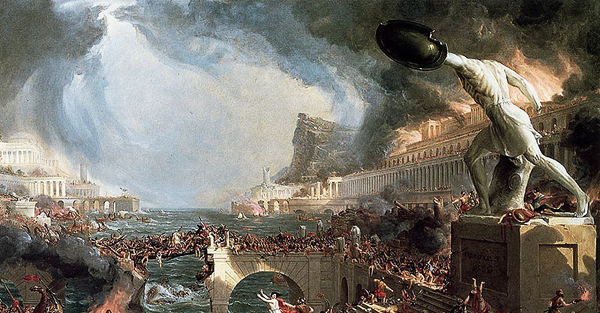
On Jan. 1, 2002, the day that euro coins and banknotes entered into circulation, my column, “Say Goodbye to the Mother Continent,” contained this pessimistic prognosis:
“This European superstate will not endure, but break apart on the barrier reef of nationalism. For when the hard times come, patriots will recapture control of their national destinies from Brussels bureaucrats to whom no one will ever give loyalty or love.”
The column described what was already happening.
“Europe is dying. There is not a single nation in all of Europe with a birth rate sufficient to keep its population alive, except Muslim Albania. In 17 European nations, there are already more burials than births, more coffins than cradles.
“Between 2000 and 2050, Asia, Africa and Latin America will add 3 billion to 4 billion people — 30 to 40 new Mexicos! — as Europe loses the equal of the entire population of Belgium, Holland, Denmark, Norway, Sweden and Germany.
“By 2050, the median age in Europe will be 50, nine years older than the oldest nation on earth today, Japan. One in 10 Europeans will be over 80. And who will take care of these scores of millions of elderly, before the Dutch doctors arrive at the nursing home?
“Immigrants is the answer, immigrants already pouring into Europe in the hundreds of thousands annually from the Middle East and Africa, changing the character of the Old Continent. Just as Europe once invaded and colonized Asia, Africa and the Near East, the once-subject peoples are coming to colonize the mother countries. And as the Christian churches of Europe empty out, the mosques are going up.
“Yet, even as great nations like France, Germany, Italy and Spain grow weary of the strain of staying independent, sovereign and free, the sub-nations within are struggling to be born again. In Scotland, Wales, Ulster, Corsica, the Basque country and northern Italy are secessionist movements not unlike those that broke up Czechoslovakia, Yugoslavia and the Soviet Union into [24] independent nations.”
What was predicted, 14 years ago, has come to pass. (continue reading)

